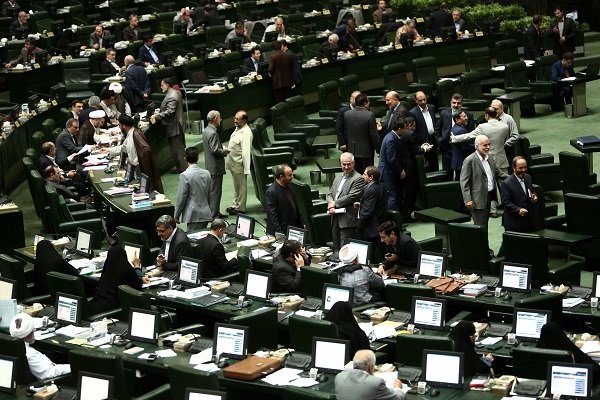Alwaght- Iran's parliament has ordered the country's foreign ministry to launch a “virtual embassy in Palestine” within six months as part of the newly approved bill of the parliament aimed at “confronting Israeli hostile practices against regional and international security.”
According to article 1 of the bill, all of the state institutions will be tasked with confronting the Israeli hostilities using the constitutional capacities. The actions comply with the general policy of the country and will use Iran’s regional and international capacities to counter the “hostile” Israeli actions against the Palestinian people, the Islamic Republic, and the “destructive role of the Israeli regime.”
The bill also targets the Israeli actions destabilizing the regional and international peace, warlike policies, terrorist actions, cyberwars, use of banned and heavy weaponry against the Palestinians, and Tel Aviv annexation of Syrian Golan Heights and West Bank to the already occupied territories.
Article 2 tasks the ministry of foreign affairs with forming a virtual embassy in Palestine within six months as part of Act to Support Islamic Revolution of Palestinian Nation which was passed on May 9, 1990, by the Islamic Shura Majlis, a local name for the Iranian parliament. The foreign ministry is required to report to the lawmakers on the virtual embassy, as it is asked to negotiate with foreign countries on the case.
Virtual embassies and their history
Before Iran, a number of countries launched online embassies. Sweden was the first country to launch the service. Swedish officials say launching the online embassy allows the younger generations to be provided with knowledge on the target country. According to the Swedish Institute, the online embassy does not issue visas and passports but does guide the visitors and visa applicants to get their visas in the real world.
Other services provided by the virtual embassy or consulate included consular support, marriage papers, education certificates, vote authorization, and pension-related works. They also answer questions about tourism, visas, and business ties, as they besides provide news and information services.
The relations of two countries that have no resident ambassadors and no physical place and the exchanges all go online and the ambassadors remain in their own countries present another concept of the virtual embassy. The virtual embassies also give the small countries and the countries with limited financial and human resources the chance to promote their abroad representation. Experts suggest that the virtual embassies are still at the “conceptual” stage yet, however.
In addition to Sweden, some other countries opened their virtual embassies. The US, for example, opened its virtual consulates in Turkey, Saudi Arabia, and a number of European countries. And now Iran is joining the club.
Iranian initiative influential concerning Palestine
The Iranian move of opening a virtual embassy in Palestine is an initiative no Islamic country has so far taken. Iran will be remembered as a frontrunner in the issue.
Launching the online embassy service for Palestine is not only a move strengthening the Palestinian position on the world arena but also can set an example for the Arab and Muslim countries and also the countries that support the ideal of the liberation of Palestine.
If other countries take similar steps and form virtual embassies, Tel Aviv will face a legitimacy challenge. It will be in a weaker position and its interests will be more threatened by legitimacy crises.
The Iranian move to launch a virtual embassy came on the threshold of the International Quds Day, an event marked annually on the last Friday of the holy month of Ramadan to raise awareness about the Palestinian cause.



























